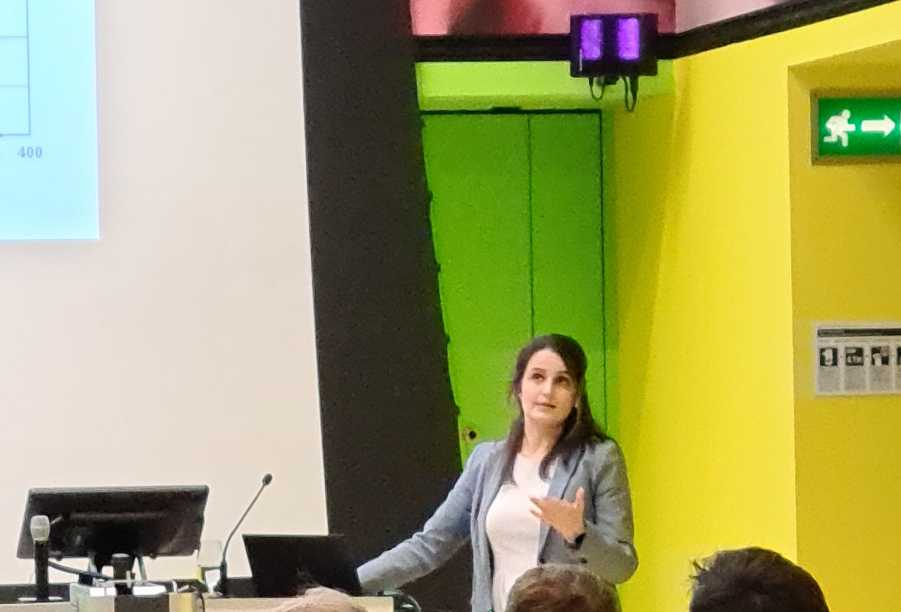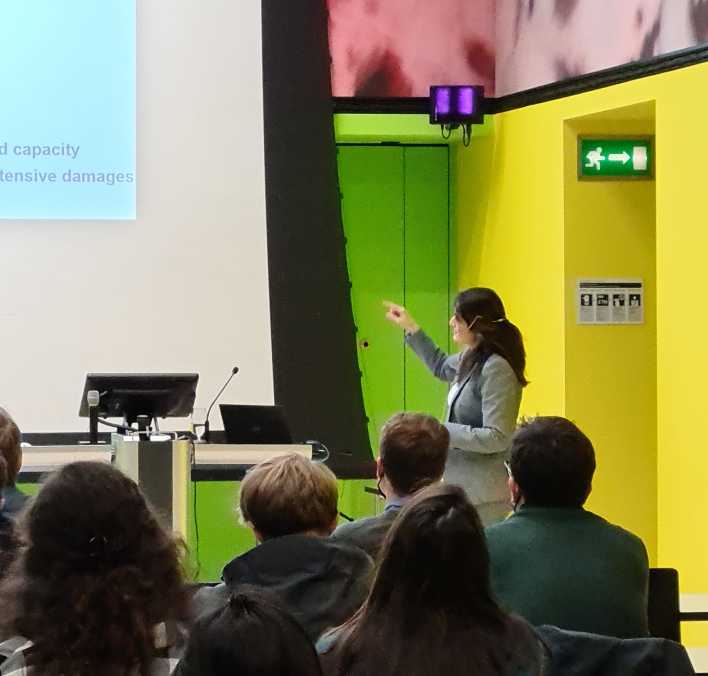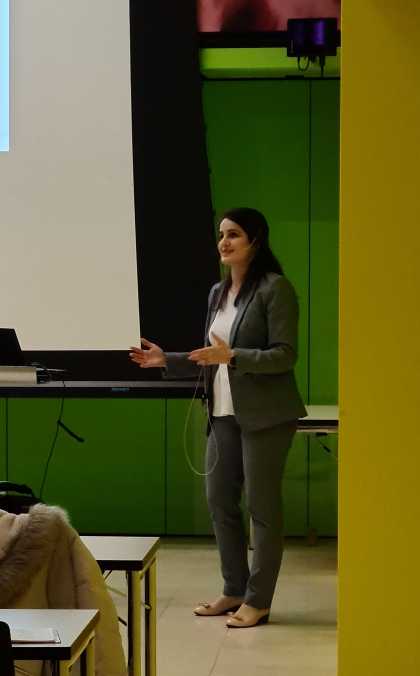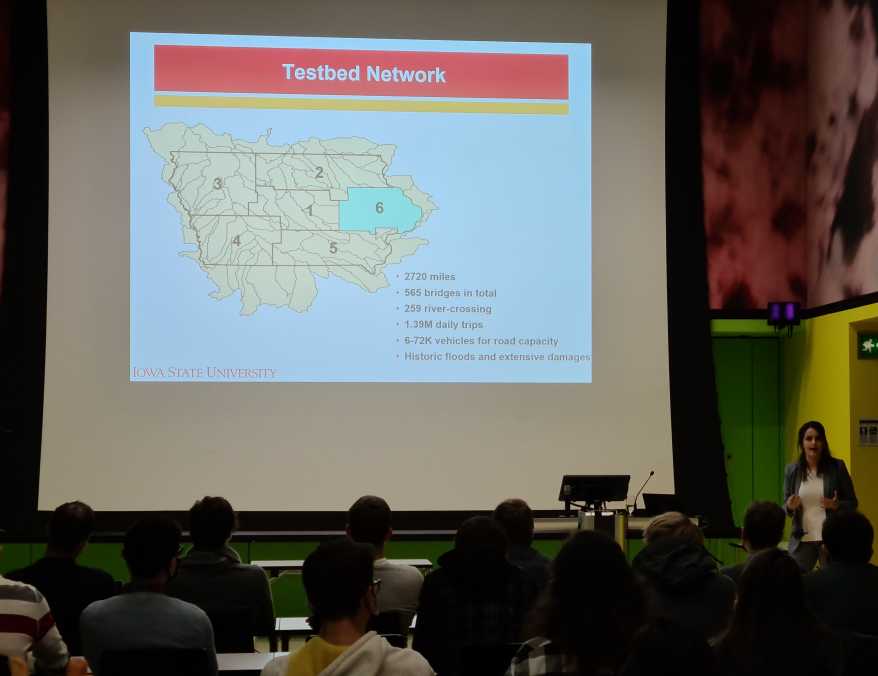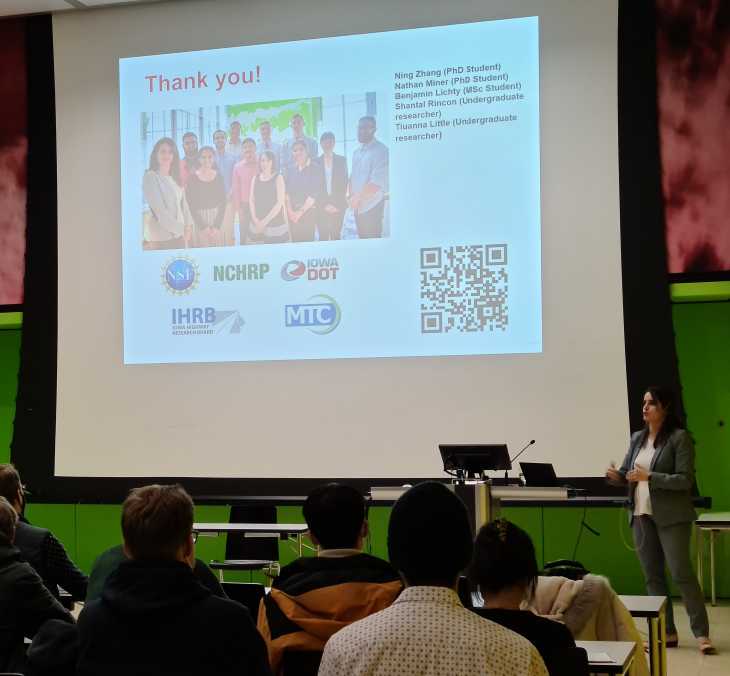Guest Professor Prof. Dr Alice Alipour gives a successful presentation at ETH Zurich
Prof. Dr. Alice Alipour, Guest Professor at the Chair of Infrastructure Management of Prof. Dr. Bryan T. Adey, gave a presentation on 30 November on the topic: "Toward the next generation of resilient infrastructures: A new balance between ex-ante and ex-post decisions".

Abstract of the topic presented:
Natural hazards can result in significant damage and disruption to the physical built environment, including various infrastructure systems and the socio-economic activities that rely on them. Investigations of recent disasters caused by natural hazards have revealed the importance of infrastructure resilience, especially for an integrated safety, performance, and functionality. Infrastructure resilience is defined as the ability to get prepared, plan for, absorb, and recover from actual or potential extreme events. Thus, a thorough understanding of each component associated with this definition is deemed essential to move toward achieving resilient infrastructures. Furthermore, there are three unique attributes in this critical domain that should be synergistically accounted for: (1) infrastructure systems are geographically distributed systems and have a large number of components, (2) natural hazards are highly uncertain both spatially and temporally, and (3) community resources are limited, especially in the aftermath of extreme events. The combination of the outlined considerations underlines the importance of ex-ante and ex-post decisions to promote resiliency not only at the component but also at the system level. For establishing the resilience in the new generation of civil infrastructures, this presentation will introduce the formulation of a nonlinear two-stage stochastic programming model that aims to build a balanced portfolio of ex-ante and ex-post activities to reduce the risk and time of recovery, while minimizing the direct and indirect losses. The developed model benefits from a data-driven simulation environment, which combines scenario reduction, hybrid heuristic method of evolution strategy, and high-performance parallel computing, to find optimal resilience-oriented solutions. By examining the model in a large-scale, geographically-distributed transportation network subjected to flood events, the main capabilities are evaluated. This leads to the recommendations for further implementing such models to transform the resiliency of the built environment under extreme events.
The Infrastructure Management Group mission is to improve the construction and management of infrastructure. For more information visit our webpage
